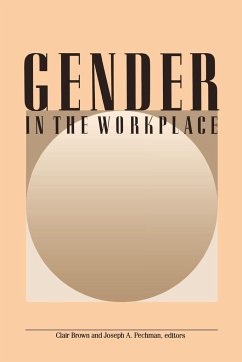
Black Women in the Workplace
Impacts of Structural Change in the Economy
Versandkostenfrei!
Versandfertig in 1-2 Wochen
87,99 €
inkl. MwSt.

PAYBACK Punkte
44 °P sammeln!
In the recent debate over the growing poverty among blacks, attention has increasingly focused on the role of women heading households as a contributor to poverty. Throughout the debate, however, surprisingly little attention has been paid to the workplace. This study examines how structural change in the U.S. economy and particularly the rise of new service sectors have reshaped the work content, opportunity, and wages of one labor group--black women. Evidence for the study comes from two sources--statistical data from U.S. Census data on employment, particularly the Current Population Survey...
In the recent debate over the growing poverty among blacks, attention has increasingly focused on the role of women heading households as a contributor to poverty. Throughout the debate, however, surprisingly little attention has been paid to the workplace. This study examines how structural change in the U.S. economy and particularly the rise of new service sectors have reshaped the work content, opportunity, and wages of one labor group--black women. Evidence for the study comes from two sources--statistical data from U.S. Census data on employment, particularly the Current Population Survey file, and interviews with black women in several representative industries surveyed in the book. The initial chapters in the book explore the contradiction between evolving trends in the economy, including the decline in manufacturing, and a government policy that continues to rely on the marketplace to provide jobs. Chapters 4-6 explore, in more detail, the outcomes of the shift from manufacturing to services. These chapters examine how sectors individually shape job markets and may in the process provide mobility and wage gains or intensify the ghettoization of women and the stratification of women by race. The final chapters examine case histories of several black women and look at the future of black women in the emerging workplace of the twenty-first century.












